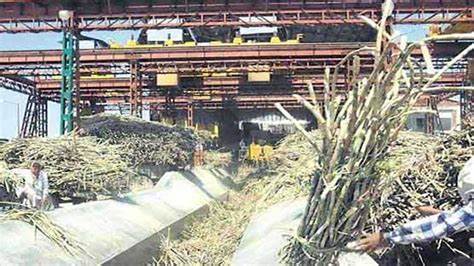Islamabad, Nov 8: Pakistan’s sugar mills are ready to start the new crushing season from 21st of November as confirmed Sugar Advisory Board (SAB) as well as Federal Minister of industries Rana Tanveer Hussain.
The above decision requires all sugar mills to commence milling from the set date in order to do so effectively and contribute to the national sugar value chain.
Particular focus has been made to ensure timely payments for the sugar cane farmers.
Mills that will not adhere to these measures are likely to have their licenses to export sugar withdrawn
as a clear indication of government’s willingness to safeguard farmers’ interest as well as steer the Afin other than turbulent.
Sugar Mills
The Pakistan Sugar Mills Association (PSMA) has also sought approval to export an additional 500,000 MT of the product.
Nonetheless, the government ok’d another quota for export on grounds of a surplus in sugar supplies.
The SAB looked at the existing stockpile of sugar and predicted that these will last for consumption in the country, not only after the new export quotas.
To attempt this drive for consolidating the sector, the PSMA will lobby for liberalization of the industry by gradually eliminating the classification of sugar as a strategic product and doing away with the Sugar Cane Act.
As the stockpile rises, the SAB has agreed to consider the overwriting of stock data on November 1st with another possible future decision on additional export methods.
Authorities have stated the existing cost of sugar has become acone with prices ranging from Rs120 and Rs125 per kilogram due to adequate availability.
The government on its part, wants to eliminate smuggling through checking cross border exports, to guarantee sufficiency of sugar for local use and to facilitate controlled exports to earn foreign exchange.
The start of the crushing season as pointed out by the government and PSMA laying down a successful season with timely farmers’ payments and avert artificial attainment of high prices.
This decision of the SAB is good for the national demand as well as export capabilities in the interest of the economy.









